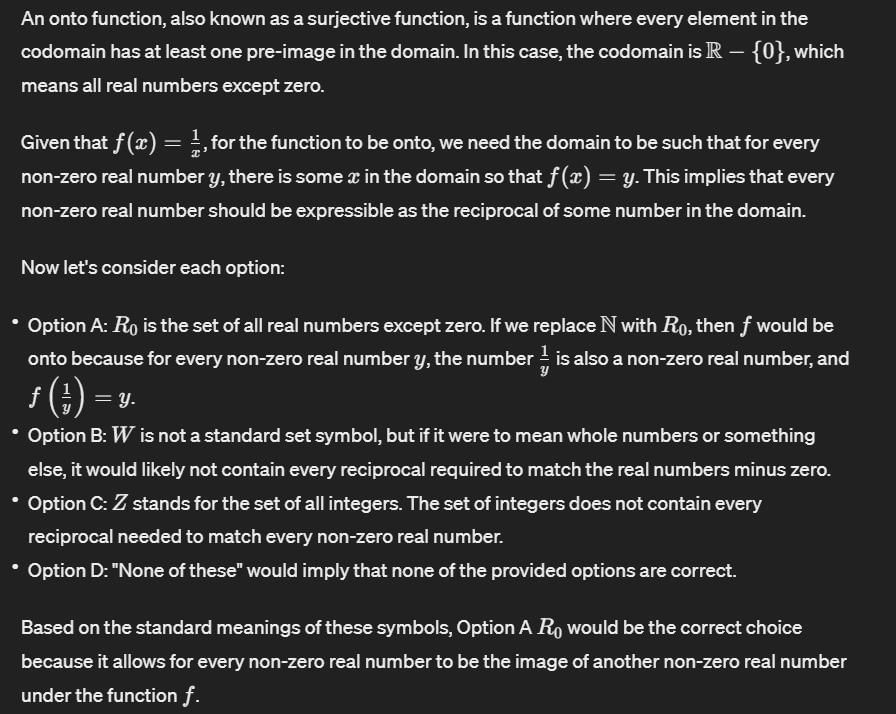Test: Types of Functions - JEE MCQ
10 Questions MCQ Test - Test: Types of Functions
Let A be the set of all 25 students of Class X in a school. Let f : A → N be function defined by f (x) = roll number of the student x. Then f is:
A function f: A x B → B x A defined by f (a, b) = (b, a) on two sets A and B. The function is:
Let f : N→ R - {0} defined as f(x) = 1/x where x ∈ N is not an onto function. Which one of the following sets should be replaced by N such that the function f will become onto? (where R0 = R - {0})
A function f: R → R is defined by f(x) = [x+1], where [x] the greatest integer function, is:
How many onto functions from set A to set A can be formed for the set A = {1, 2, 3, 4, 5, ……n}?
Let A = {1, 2, 3}. f: A → A Then complete the function f such that it one-one and onto: f = {(1, 2), (2,1) ______}
If a relation f: X → Y is a function, then for g: Y → X to be a function, function f need to be
Find the number of bijective functions from set A to itself when A contains 106 elements.
Let f and g be the function from the set of integers to itself, defined by f(x) = 2x + 1 and g(x) = 3x + 4. Then the composition of f and g is ____________















